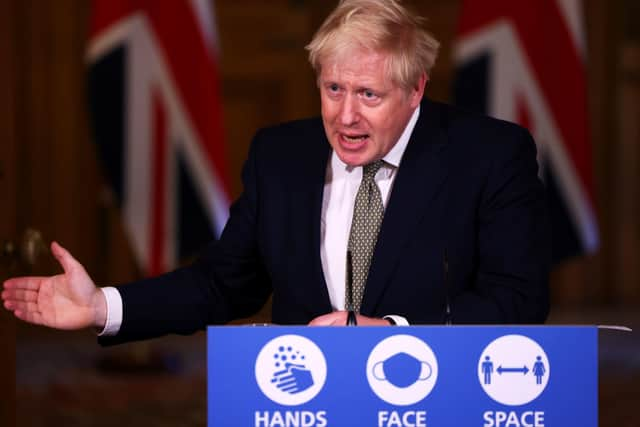Retaining and recruiting doctors must be urgent priority or NHS could face catastrophic consequences - Brian McGregor and Sakkaf Aftab


All over the country, medical staff who have given their all to care for us and our families, sometimes at risk to their own safety, have been touched by the outpourings of public support for our NHS.
But the rainbows and rounds of applause are not enough to make many of our most senior doctors feel that they are truly appreciated by the people who hold the power and the purse strings in our country.
Advertisement
Hide AdAdvertisement
Hide AdA report published this month by the BMA and eight of the country’s most well-respected medical bodies, including the Royal College of Physicians and Faculty of Intensive Care Medicine, reveals that many senior doctors, fed up with long hours, years of real-terms pay cuts and stressful conditions, are leaving the NHS at an earlier stage than anticipated.


This is contributing to a significant shortage of consultants in hospitals across England; a BMA survey from January 2019 found that six out of 10 consultants intend to retire before or at the age of 60.
Even before the Covid crisis struck, the BMA had been warning for years that inadequate staffing was leading to burnout, low morale and poor wellbeing.
While the overall number of full-time equivalent consultants continues to grow, the demand for consultant-based work is growing at a much faster rate – compounded by our growing and ageing population needing even more care.


Advertisement
Hide AdAdvertisement
Hide AdAt the end of June 2020, there were at least 8,278 full-time equivalent medical vacancies in hospitals and clinics. This should worry us all, as the quality of the healthcare is directly dependent on enough people being available to administer that care.
It’s clear to everyone who works in a hospital, who has been ill themselves, or has a friend or relative that needed care, that under-staffing in the NHS has affected our ability to manage Covid.
If we had more doctors, nurses and other clinicians, we would have been much better prepared to deal with the pandemic – and more able to reduce the health inequalities that have made people in our Northern cities the hardest-hit victims of the virus.
We believe that the public understands more than ever that steps must be taken urgently to make sure that the existing NHS workforce is both retained and subsequently increased in number.
Advertisement
Hide AdAdvertisement
Hide AdThe Government and NHS leadership should grasp this moment and take the following simple steps to prioritise the health and wellbeing of staff. Firstly, it is vital that all healthcare workers are kept safe, and this means guaranteeing access to appropriate PPE. Staff who are more at risk of Covid-19, including BAME staff, need to be well protected. Employers must ensure that staff know where they can access support for their mental or physical health.
Many consultants are worn down by the pressures of NHS working, and changes in working practices are needed to encourage them to remain at work even longer. This includes allowing consultants to work more flexibly and encouraging conversations between employers and doctors nearing retirement about any adjustments they may need.
It’s vital that careers in medicine are made more attractive to women, including by addressing the gender pay gap. As increasing numbers of women enter the consultant workforce, it is essential that career pathways and workplace environments are designed to retain them, while barriers that make women less likely to apply for higher paid roles must be removed.
More funding needs to be made available to increase medical school numbers alongside increased resources and educators, including consultants and academics, who are also required to deliver the increased education and training workload.
Advertisement
Hide AdAdvertisement
Hide AdAccording to the BMA’s report, at least an extra 7,500 medical school places would also be required to grow the consultant workforce, taking the annual cohort to around 14,000-15,0000 medical students. At the other end of the career spectrum, more work needs to be done to harness the expertise of retired doctors coming back on to the medical register, ensuring NHS employers are provided with adequate funds to use this vital resource.
We’ve reached a position where every doctor is more precious than ever, and in the face of an unwavering global pandemic – and with the potential for more in the future – everything must be done to retain and recruit more doctors as a matter of urgency. Without that, we risk creating an NHS that no one wants to work in, the consequences of which are potentially catastrophic.
Brian McGregor is the BMA Yorkshire regional council chair and Dr Sakkaf Ahmed Aftab is chair of BMA Yorkshire regional consultants committee.
Support The Yorkshire Post and become a subscriber today. Your subscription will help us to continue to bring quality news to the people of Yorkshire. In return, you’ll see fewer ads on site, get free access to our app and receive exclusive members-only offers. Click here to subscribe.